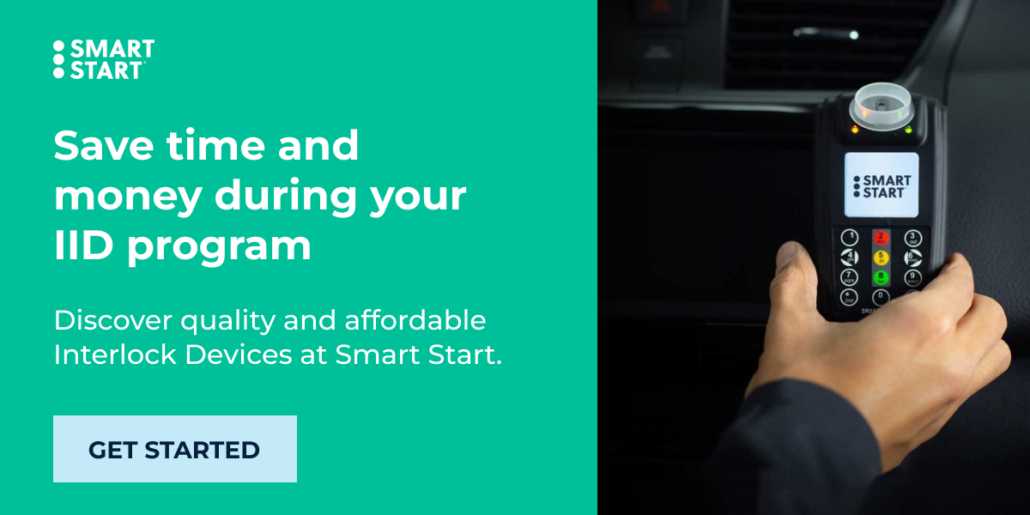Can I Drive Another Car Without an Interlock Device?
If you have been required to install an Ignition Interlock Device (IID) in your vehicle due to a DUI or DWI offense, you may be wondering “Is driving without an Interlock a felony?” The answer is no in most cases. But every state is different and there are some exceptions. We’ve got you covered with a general guide to whether or not you can drive without an Interlock and what the consequences might be if you do.
Ignition Interlock Laws & Requirements
How many Interlock violations you can have and what states require Ignition Devices differ between state and local laws, making it essential to be aware of the specific rules in your local area. Interlock laws and requirements are usually enforced by each state’s Department of Motor Vehicles (DMV) or Department of Transportation (DOT). In general, if you are required to drive with an Interlock Device, you must only drive an operable moving vehicle with an IID installed. This means you cannot drive another car without an Interlock Device unless you have received explicit permission from the relevant authorities (your parole officer, your state authority, the DMV).
As an example, in California, the Department of Motor Vehicles states that if you have an IID restriction, you can only drive a vehicle equipped with an Interlock Device, and you must not attempt to bypass, tamper with, or remove the device. 1Violation of these regulations can lead to more penalties and an extension of your IID requirement period.
Different Scenarios in Which You’d Need to Drive Another Vehicle
Driving a Friend or Family Member’s Car
While it may be tempting to drive a friend or family member’s car without an Interlock Device, it’s important to remember that the law typically requires you to drive only vehicles equipped with an IID. The Texas Department of Public Safety, for example, requires that people with an IID restriction only drive cars with an Interlock Device installed.2 Encourage your friend or family member to install an Interlock Device in their car if you think you will need to drive it regularly.
Driving a Rental Car
When it comes to rental cars, specific requirements about IIDs vary from state to state. For instance, in Arizona, the Motor Vehicle Division (MVD) says that rental car companies are required to offer cars equipped with Interlock Devices to drivers with Interlock restrictions.3 Always inform the rental company of your IID requirement and ensure they provide an IID compliant vehicle to avoid any legal issues.
Driving a Work Vehicle
If your job involves driving a company-owned vehicle or fleet, it’s crucial to discuss your IID restriction with your employer. In states like Colorado, the Department of Revenue says that people who have an IID requirement can operate a company-owned vehicle if an Interlock Device is installed.4 Employers should be understanding of your situation and make arrangements for a vehicle with the necessary Interlock Device to make sure you’re in compliance with the law.
Test Driving a Vehicle
When it comes to test driving a vehicle, certain states have exceptions that allow people with IID restrictions to do so without an Interlock Device installed. For example, the Georgia Department of Driver Services permits a one-time exemption for test driving vehicles without an IID, but only with prior authorization.5 Outside of Georgia however, it’s essential to check with the authorities or your legal advisor to confirm if such exceptions apply in your state and that you get the necessary permissions before test driving a car without an IID.
Penalties for Driving Another Car Without IID
The penalties for driving another car without Ignition Interlock Devices can be severe and will vary depending on your location and specific circumstances. For example, in Oregon, the Department of Transportation specifies that driving without an Interlock Device while under an IID restriction can result in a Class A traffic violation and an extension of the IID requirement period.6
In addition to fines and penalties, driving without an Interlock Device could lead to license suspension, criminal charges, and even imprisonment in some cases, depending on your location and the circumstances of the violation. Here are some potential consequences you could face:
Fines: The range for fines for driving a car without an IID can vary significantly depending on the state and the specific circumstances of the violation. The penalties are usually based on the laws and rules of each state and are subject to change. In some states, fines for driving without an Interlock can start from a few hundred dollars and can go up to several thousand dollars. For repeat offenders or more serious violations, the fines may be even higher.
Extended IID Requirement: Your mandatory IID restriction period may be extended if you are caught driving a vehicle without the required device.
License Suspension: Driving without an IID could result in a suspension or revocation of your driver’s license, making it even more challenging to regain full driving privileges.
Legal Consequences: Violating IID requirements may lead to criminal charges, complicating your legal situation further.
Jail Time: In severe cases, you could face imprisonment for driving without an Interlock Device, especially if your violation resulted in accidents or injuries.
Giving due attention to these penalties and contemplating the possible outcomes of not adhering to them is advised.
Adhering to Interlock Device Requirements
Overall, if you have an Ignition Interlock Device requirement, it’s important to stick to the restrictions placed on your driving privilege. Driving another car without an Interlock Device can lead to significant legal consequences, fines, and the extension of your IID requirement. To avoid these penalties and ensure compliance, always drive a vehicle with an Interlock Device installed. If you find yourself in situations where driving another car is unavoidable, seek guidance from your legal advisor or the appropriate authorities to get the proper permissions.
At Smart Start, we understand the importance of adherence to IID requirements while providing reliable, state-approved Interlock Devices. Don’t let an Interlock requirement hold you back; trust Smart Start to help you move forward confidently.
Need to Install an Ignition Interlock?
There are various types of Ignition Interlock Devices you can check out. We also provide an extensive guide on common Ignition Interlock Device problems and how to fix them. If you need to schedule an Ignition Interlock installation appointment, call our friendly, 24/7 Customer Care Center at (800) 831-3299 or fill out our simple online form!
The information provided in this article is for informational purposes only and should not be considered legal advice. Laws and regulations can change, so it’s essential to consult with a qualified legal professional to understand your specific situation and responsibilities fully.
Sources:
- California Department of Motor Vehicles. “Ignition Interlock Device (IID) Program.” https://www.dmv.ca.gov/portal/vehicle-industry-services/special-interest-and-personalized-plates/ignition-interlock-device-iid-program/
- Texas Department of Public Safety. “Ignition Interlock Device (IID) Program.” https://www.dps.texas.gov/DriverLicense/Interlock.htm
- Arizona Department of Transportation. “Ignition Interlock Device.” https://azdot.gov/motor-vehicles/driver-services/ignition-interlock-device
- Colorado Department of Revenue. “Ignition Interlock Driver License Restriction.” https://dmv.colorado.gov/ignition-interlock-driver-license-restriction
- Georgia Department of Driver Services. “Ignition Interlock Device Program.” https://dds.georgia.gov/ignition-interlock-device-program
- Oregon Department of Transportation. “Ignition Interlock Device Program.” https://www.oregon.gov/odot/dmv/pages/driverid/ignitioninterlock.aspx
Schedule an Installation
Get a quick and easy IID installation with Smart Start! Get started today!
¡Obtenga una instalación rápida y fácil de IID con Smart Start! ¡Empieza hoy mismo!
"* (required)" indicates required fields






